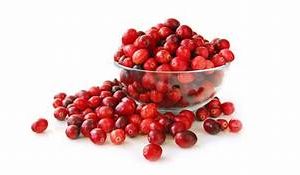on Jan 2, 2019 in Fitness, General Wellness, Nutrition
Twenty-eight scientific studies indicate that bumping up your cardio/strength training and eating a plant-based diet greatly curbs food cravings and can keep you focused on your goals for a healthier...
Read More
on Nov 12, 2018 in General Wellness, Nutrition, Wellness Blog
There are over 40 different types of known auto-immune diseases and probably many more that we don’t yet know. Woman are more effected than men. Auto-immune disease occurs when our natural immune system develops antibodies that attack the healthy tissues of our body. Auto-immune disease affects 23 million Americans. It is not entirely clear what causes auto-immune disorders. They tend to cluster in families, indicating it may have a strong genetic predisposition component, but there is probably many different factors that trigger the disruption of our immune system. Depending what area of the body is being attacked the disease can cause different symptoms. When the thyroid is attacked it is expressed as Hashimotto’s thyroiditis or Graves disease. If the adrenals are affected it is Addison’s, the pancreas, Type-1 Diabetes. If the immune system attacks the tissue between joints and bones it is rheumatoid arthritis. In the lining of the GI track it is Chronn’s disease. Even diseases like Asthma, Multiple Sclerosis, Sjoren’s, and some cancers are thought to be auto-immune triggered. It isn’t yet clear what may be causing this to happen. Some research indicates that environmental toxins play a role, especially toxins like the BPA which is commonly found in plastics, cash register receipts, etc., but it is clear that the occurrence of these types of disorders are on the rise. What seems to be clear is that diet plays a major role in both avoiding an auto-immune disease and recovering from one. A low salt, predominately plant based diet has been shown to greatly decrease the inflammation that accompanies auto-immune disease and to greatly reduce symptoms. One study showed that ninety two percent of people with Chronn’s disease were able to avoid a relapse when followed for two years after diagnosis and treatment by eating a whole foods (no processed foods), predominately plants based (fruits, vegetables, whole grains, beans) diet. That is Compare that to the 85% relapse rate of those who did not make any dietary changes. Salt in particular has been shown to aggravate autoimmune disease and some research indicates it may play a role in the development of the disease. The typical American consumes about 12 grams of salt per day. Apparently we have a salt...
Read More
on Nov 1, 2018 in General Wellness, Nutrition, Weight Loss
Whether it comes in a can, frozen, juiced, dried or fresh, cranberries have a handful of health benefits and disease–fighting powers. These berries can help fight bacteria and inflammation, reduce the risk of heart disease, improve oral health, help prevent ulcers and yeast infections, and may even inhibit the growth of some human cancer cells. Not only are cranberries one of only three berries native to the U.S., in addition to blueberries and grapes, this super–fruit is also teaming with anti–oxidants which help prevent and repair cell damage done by free radicals and are rich in vitamins and fiber. Cranberries are also well known for preventing urinary tract infections however and possibly help if you have an urinary tract infection. Avoid sugary juice cocktails and jellied sauces, which have fewer antioxidants. To get the most benefit for those berries, try the fresher versions. Chopped fresh cranberries mixed with chopped, toasted pecans, a tbsp of orange juice and a bit of honey makes a delicious fresh cranberry salad! Tis the season…enjoy....
Read More
on Sep 7, 2018 in Fitness, General Wellness, Nutrition
EAT THE WHOLE EGG IF YOU WANT BETTER RECOVERY FROM WORKOUTS AND MUSCLE REPAIR! A study from the University of Illinois at Urbana Champaign found that people who ate whole eggs after a workout recovered better than those who skipped the yolks and only ate egg whites. There was a dramatic difference between the two groups in how their muscles recovered from workouts. Those who ate the whole eggs had a 40% greater muscle building response compared to those who ate the same amount of egg-white protein but didn’t eat the yolk. Egg yolks contain proteins and other key nutrients that are not present in egg whites. The mechanism of what and how egg yolks boost our body’s ability to regenerate and repair muscle is not yet known. If you do decide to eat eggs, keep them to a minimum and make sure your plate is 3/4 full of plant-based foods. Purchase organic and free range when...
Read More
on Aug 28, 2018 in General Wellness, Nutrition
Someone says, “Protein” and everyone is looking for the meat, cheese, chicken, dairy or fish. But animal sources of protein are not the only sources. In fact, adults and children can easily get adequate protein from plant-based foods. Nuts, beans and grains are loaded with protein and even small amounts are found in vegetables. Animal proteins are often called “high-quality” because they contain the right amount of all the essential amino acids needed to synthesize protein in our bodies. Amino acids are the building blocks that proteins are made of. There are 26 different amino acids that are put together in different combinations in our body to make things like muscle, ligaments, connective tissue, cartilage, bones, nerve tissue, etc. A few plant sources have all the essential amino acids in them: Foods like soy, quinoa, buckwheat, chia and hemp seed, mycoprotein (marketed as “quorn”) and spirulina. People who eat these do not need to eat animal sources to get their protein. But eating a vegan diet full of foods that may not have all 9 essential amino acids, i.e. beans, nuts, seeds, rice, wheat, etc., still provides enough protein. The essential amino acids that one food is low in, is complimented by another that is high. You find these natural compliments in foods in traditional cultural combinations. The amino acids in beans are complimented by those in wheat, corn, and rice. So a bean burrito or corn bread and chili are perfect combinations. Why does it matter? Well… while meats provide quality protein, there is often a lot of fat in them as well making them a high calorie choice and they provide little to no added nutrient value. Plant-based proteins are more filling on less calories. The starch and fiber in plant-based foods are satiating, help aid gut health, and lower cholesterol levels. Plus you are getting several of the essential vitamins, minerals and phytonutrients from the plants that you wouldn’t get from eating animal proteins. Additionally, any animal protein source is higher up the food chain and by nature has a higher amount of toxins, pollutants, and pesticide residues. Eating a plant-based diet helps you avoid exposure to these...
Read More
on May 7, 2018 in Cancer prevention, General Wellness, Nutrition, Uncategorized, Weight Loss
The healing properties of green tea have long been documented and it’s possible weight loss benefits as well. The phytonutrient found in green tea called catechin is thought to be the main nutrient responsible for the benefits of green tea. A recently published study in the Nutrition Research Journal reviewed data from 6 human trials comparing the effects of catechin (antioxidant) containing beverages (Like green tea) with a placebo beverage to see if catechin beverages could lower the risk of metabolic syndrome. Metabolic syndrome is a medical condition characterized by a cluster of symptoms that include obesity around the mid-section, elevated blood cholesterol, elevated blood sugars, and fatty liver. Metabolic syndrome increases risk for certain cancers, and heart disease. The review found that consuming green tea beverages for 12 weeks significantly reduced abdominal fat, body weight, BMI, and waist circumference; and improved blood pressure. Furthermore, researchers found an improvement in the metabolic syndrome group, suggesting green tea catechins as a potential to prevent diabetes and cardiovascular...
Read More



